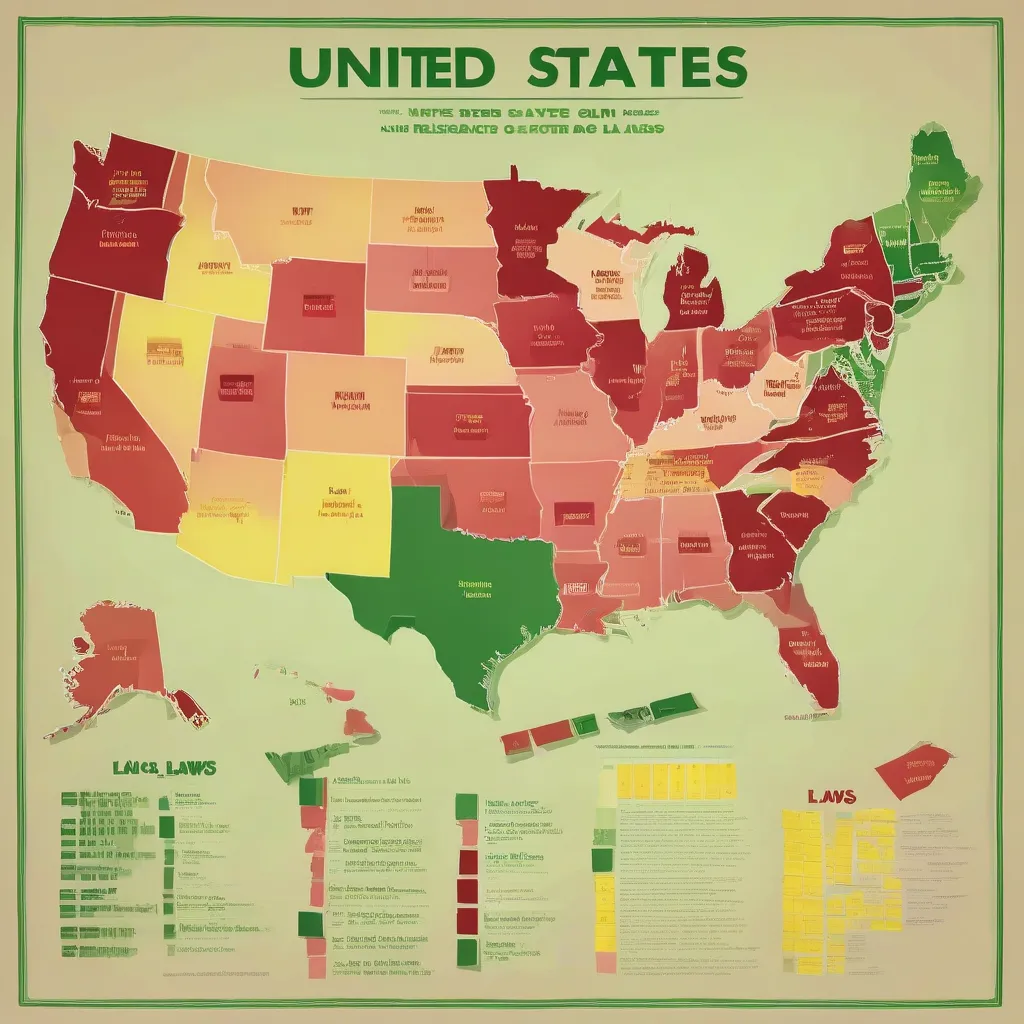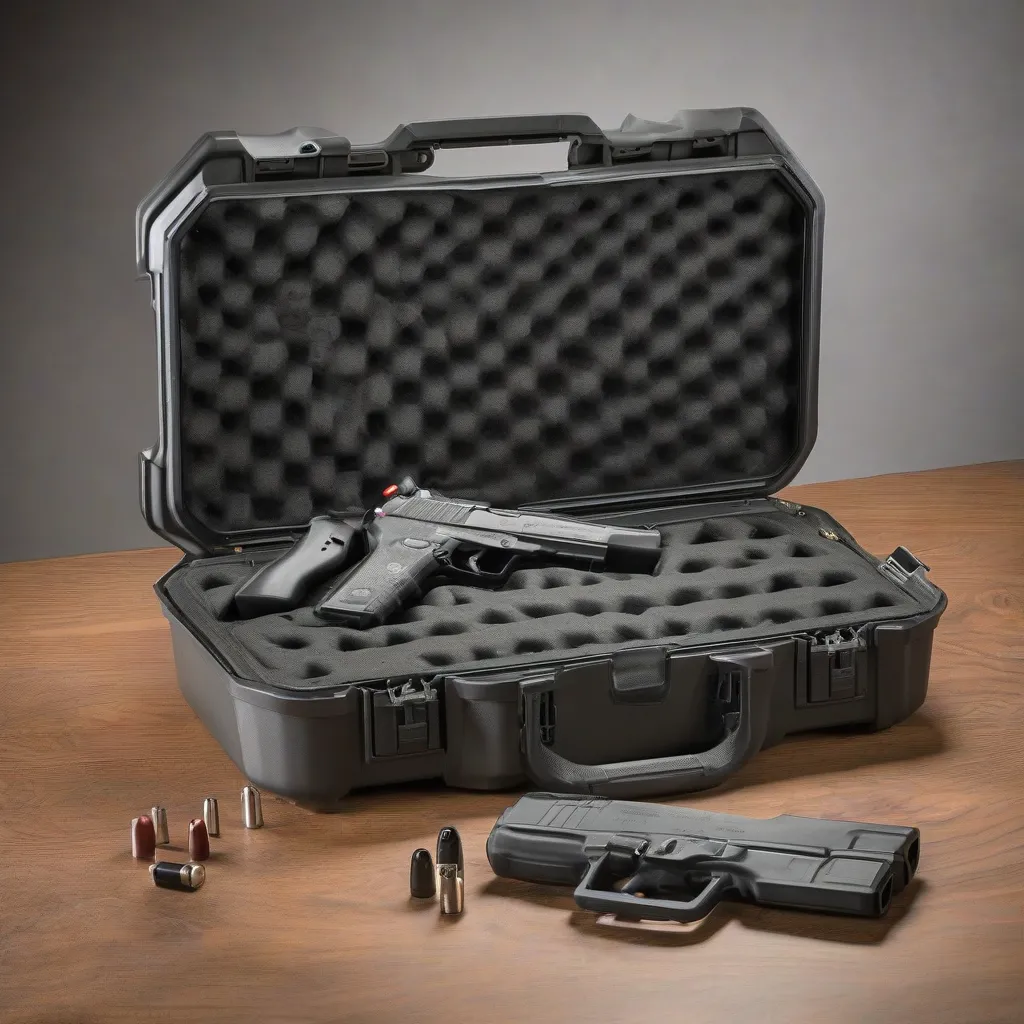Planning a cross-country road trip and wondering, “Can I bring my gun?” Traveling with a firearm involves more than just tossing it in your glove compartment. Whether you’re headed to the breathtaking national parks of Utah or the vibrant streets of New Orleans, understanding the laws and regulations surrounding firearm transportation is crucial.
This comprehensive guide provides everything you need to know about traveling with a gun, ensuring a safe and legal journey.
Understanding Federal and State Laws
The most crucial aspect of traveling with a firearm is understanding the patchwork of federal and state laws.
Federal Law: The Firearm Owners Protection Act (FOPA) provides some guidelines for interstate transportation of firearms. However, it’s crucial to remember that FOPA doesn’t override state laws, which can vary significantly.
State Laws: Each state has its own set of laws regarding firearm ownership, possession, and transportation. For example, what might be legal in your home state of Texas could land you in trouble when crossing state lines into California.
Reciprocity Agreements: Some states have reciprocity agreements that recognize concealed carry permits from other states. However, it’s crucial to research the specific requirements of each state you plan to travel through.
Essential Steps for Traveling with a Firearm
Research and Plan Your Route:
Before you hit the road, meticulously research the firearm laws of each state you’ll be traveling through, including any states you’ll be driving through.
- Online Resources: Utilize reputable sources like the Bureau of Alcohol, Tobacco, Firearms and Explosives (ATF) website and state government websites to access up-to-date information on firearm laws.
- Contact Authorities: If you have any doubts or questions, reach out to the attorney general’s office or state police in each state for clarification.
Invest in a Secure Firearm Case:
A sturdy, lockable, hard-sided case specifically designed for firearms is non-negotiable.
- TSA Approved Locks: Use TSA-approved locks to secure your case, allowing TSA agents to inspect your firearm if necessary without damaging your lock.
- Case Placement: Store your firearm case in the trunk or the most secure, inaccessible part of your vehicle.
Ammunition Storage:
Ammunition should be stored separately from your firearm in a locked container.
- Factory Packaging: Keep ammunition in its original packaging whenever possible.
- Ammunition Case: Invest in a dedicated, lockable ammunition case for added security.
Transportation Security Administration (TSA) Guidelines:
If your travels involve air travel, familiarize yourself with TSA regulations:
- Declare Your Firearm: Declare your firearm to the airline at the check-in counter.
- Unloaded Firearm: Your firearm must be unloaded and stored in a locked, hard-sided case.
- Ammunition: Ammunition must be in its original packaging or a secure box and stored in your checked luggage.
 Traveling with a Gun Map
Traveling with a Gun Map
Commonly Asked Questions About Traveling with a Gun
Can I carry my firearm on my person while driving?
This varies greatly by state. Some states recognize concealed carry permits from other states (reciprocity), while others have strict regulations. Always check the specific laws of each state you’ll be in.
What happens if I’m stopped by law enforcement while transporting a firearm?
Be polite, calm, and compliant. Inform the officer that you are transporting a firearm and provide any necessary permits or documentation.
Can I travel with a firearm if I have a felony conviction?
Generally, individuals with felony convictions are prohibited from possessing firearms.
 TSA Approved Gun Case
TSA Approved Gun Case
Additional Tips for Safe and Responsible Firearm Transportation
- Know Your Rights and Responsibilities: Familiarize yourself with your rights and responsibilities as a gun owner, especially when traveling across state lines.
- Practice Safe Handling: Always handle your firearm with extreme caution. Double-check that it’s unloaded before storing or transporting it.
- Maintain a Low Profile: Avoid displaying your firearm or discussing it openly while traveling.
Remember: Laws are subject to change. Always verify the most current regulations with official sources before embarking on your journey.
For more travel tips and insights, explore TRAVELCAR.edu.vn. Discover hidden gems like the historic streets of Charleston, South Carolina, or the majestic Rocky Mountains. Safe travels!
